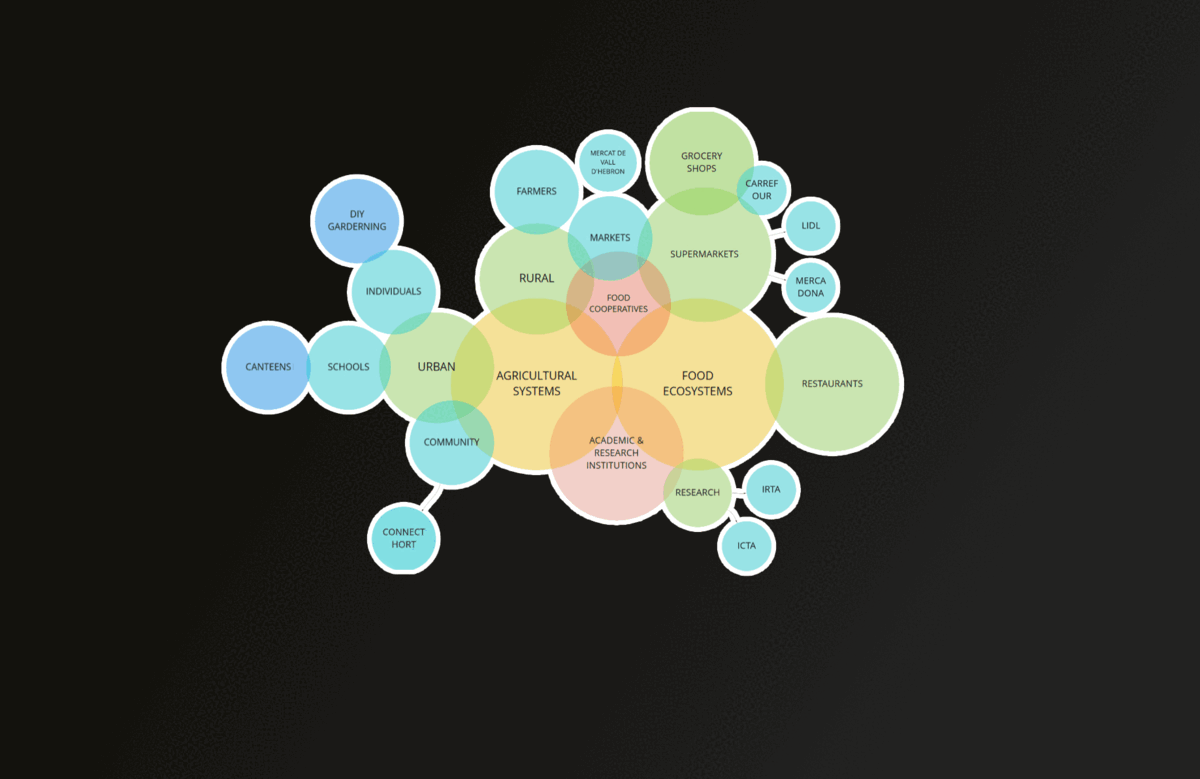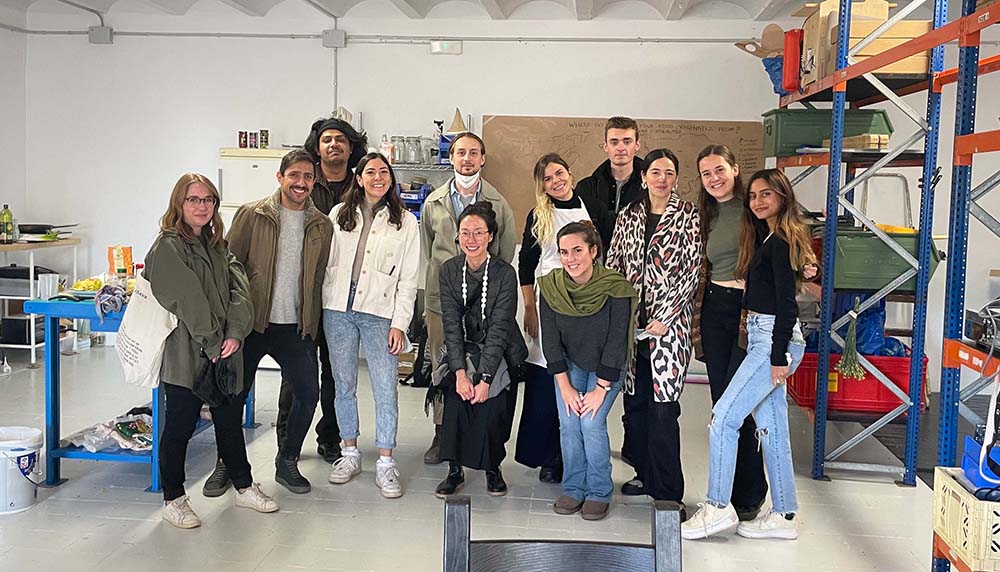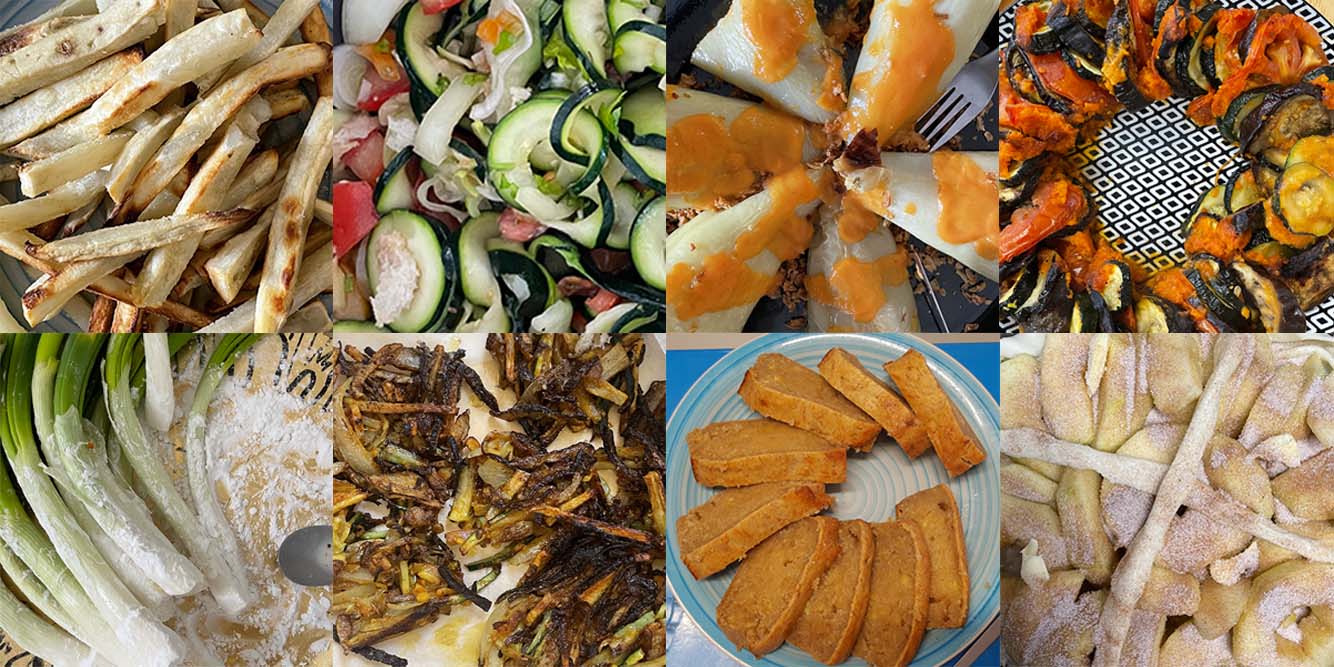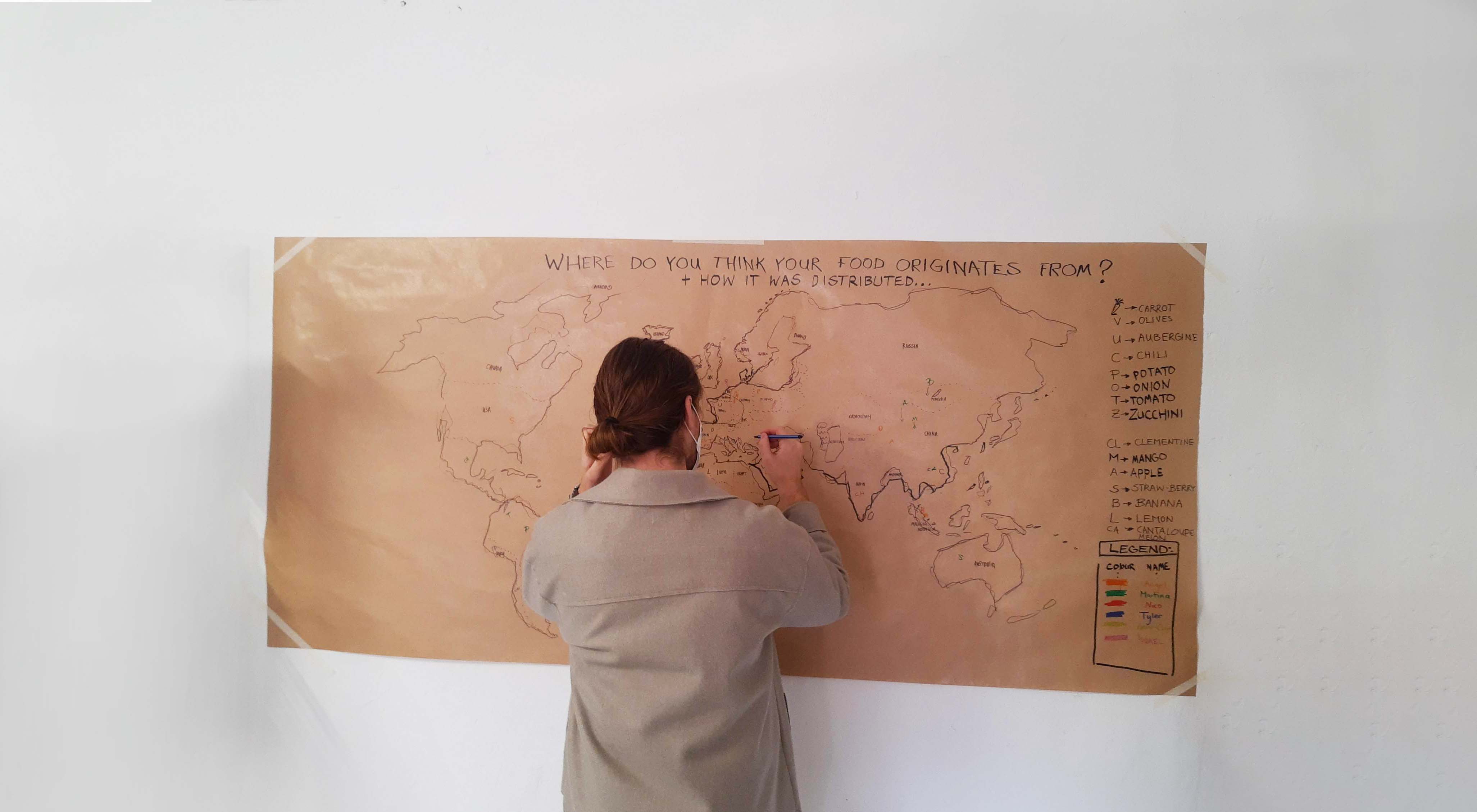Community Engagement
This course followed after two weeks of 'Tech Beyond The Myth' and was led by Mercè Rua and Merkel Cormenzana from Holon. The week started with design theory and examples and strategies from Holon's field of work.

Design Intervention: 'Conversaciones Maduras'
Goal
Creating personal awareness among consumers about the flaws in our current food system.
Process
Our first progressions initiated as a gigamap on the Miro board. Collectively we agreed on doing the intervention in the form of a workshop. Instead of shocking, confronting or oppressing people with our topic we wanted to activate people. Spreading the problem out and handing them tools and tips to tackle it on a personal scale. Derived of our Miro-board we selected and approached several individual parties that would be able and willing to realise a workshop.

On the outskirts of Barcelona, just north of El Prat de Llobregat, a municipally-owned building called Masía Can Comas is located. As orientation on local agricultural/food-related problematique
I met there with Mrs. Perxacs, recently started as Environmental Manager at Masía Can Comas.
She explained me about the activities that take place on their site and the different people and interests involved in this.
Shortly after my visit one of my workgroup colleagues got a greenlight for organizing a workshop in Hospitalet which we all regarded as a well-accessible opportunity to reach our 1st Person Perspective.
The preparations for the workshop started by looking for a party willing to provide their discarded food or foodwaste. Brainstorming and mindmapping led to a selection of different communities, companies and individuals that
might be able to give us some of their food excess.
We approached them either by email, phone or in-person which led ... working at the municipal distribution centre Mercabarna.
With him we scheduled a time and date, met up and he showed us around the facilities.
.. explained us the structure of the organization, the different people involved sectioned into ±ten large pavellons (=pavillions). It became pretty clear that
the people there, key-participants in the current food market, were facing the difficulties we were trying to address.
We met farmers selling their goods and the large ratios of which were being disposed. A Catalan pumpkin- and wallnut farmer explained to us how he estimated that 40% of his yield actually reaches the customer's plate.
As he stated; from the second I seed, I lose. Referring to the fact that a percentage of the seeds does not germinate, that a percentage dies before harvest, a percentage gets lost during harvest, a percentage gets damaged during transport etcetera..
Walking around Mercabarna we got a glimpse of the absolute quantities of foodwaste that the farmer was referring to when stating the percentages being lost.
Shipping containers full of fruits and vegetables were dismissed daily.
We collected a few bags of those products for our workshop at Hospitalet de Llobregat.
On December 6th, we hosted our workshop Conversaciones Maduras.

Together with a group of participants nine different dishes were created and consumed. It required some creativity and improvisment to come up with recipes without adding external ingredients. Ultimately those only included oil, flour, sugar, vinegar and herbs.

Simultaneously with the cooking we explained and discussed the origin of different types of fruits and vegetables by asking participants to draw their estimated point of origin on a worldmap. Aside of that we held a DIY course on how to make compost and fertilizer out of food scraps.

Results
During the workshop the confirming realization arose that the most relevant output we were generating were opinions and thoughts rather than objective (quantative) data. The food-origin worldmap turned out to be interesting in terms of seeing one's accuracy and knowledge on the topic but it was not able to strongly proof a point.

By Ruben de Haan on November 28th, 2021
Edited by Ruben de Haan on December 10th, 2021